European Youth
Capital Study Trip
June 25 – July 09, 2022
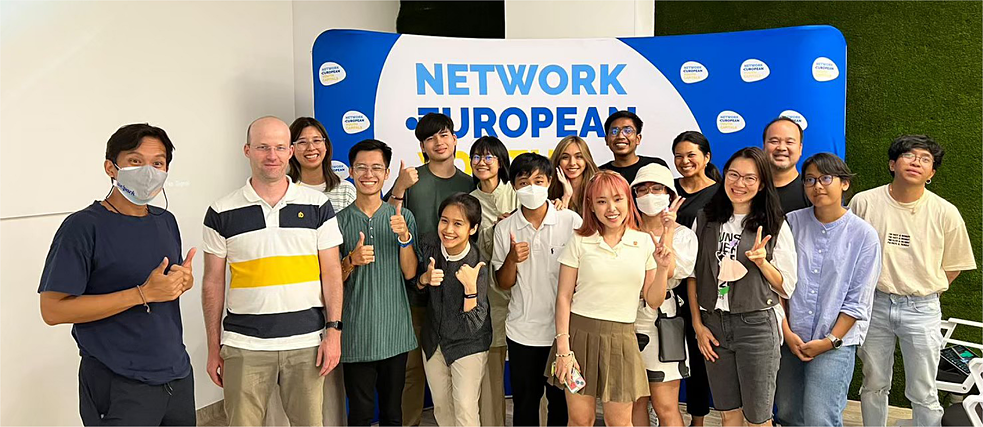
A study trip was held in 2022 visiting four cities in the European Union, including Berlin (Germany), and the European Youth Capital cities of Klaipeda (Lithuania), Cluj-Napoca (Romania) and Thessaloniki (Greece) and was designed in cooperation with the European Youth Forum and European Youth Capital to emphasize discussion and interrelation between Thai and EU youths and learn from each other’s experiences in strengthening youth participation in urban issues. Nine participants from five partner cities in Thailand (Bangkok, Chiang Mai, Hat Yai, Khon Kean and Kanchanaburi) were selected among thirty-nine applicants already participating in the project. In addition, five experts and mentors joined the study trip together with three project staff.
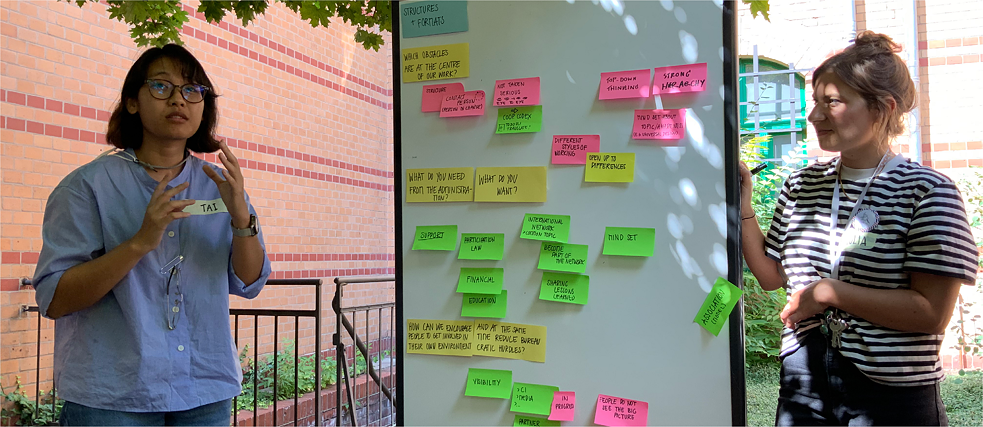
As an introductory component, a two-day programme in Berlin was hosted by Prof. Dr.-Ing. Angela Million, Director of the Global Center of Spatial Methods for Urban Sustainability, Technische Universität Berlin and her colleague, Dr.-Ing. Anna Juliane Heinrich. At POP KUDAM, a place of participation, the participants learnt about the rational for including children and young people in planning and designing process in a German context and how influential their involvement is, when it comes to public dialogue and decision making. Through the actions of JAS, a leading non-profit association of built environment education for children and young people, and the School Planning Building Environment Dep. Urban and Regional Planning (ISR) of TUB, the Thai delegation gained knowledge about the five-step methodology of “explore, envision, design, present, change”. A workshop on spatial perception led by Dr.-Ing. Anna Juliane Heinrich was more than useful to experience in practice some of the steps. As concrete examples of youth engagement in city, the RTUS delegation met and exchanged with two youth groups: the Charlottenburg-Wilmersdorf Children's and Youth Parliament, or KJP and the Urbane Liga.
In other three European cities, Klaipeda (Lithuania), Cluj-Napoca (Romania) and Thessaloniki (Greece), the agenda was constructed around the idea of presenting the existing ecosystem of youth participation in urban development and learning from their experiences through their European Youth Capital award winning process. In fact, common problems of lack of participation, opportunities and physical spaces for young people were recalled. Different creative and innovative solutions were adopted to respond to local context. For example, the municipality of Klaipeda invested considerably in creating safe spaces for young people and worked closely with KLAS, a network of 31 youth organizations who was intensively involved with the municipality in getting the European Youth Capital 2021 title.
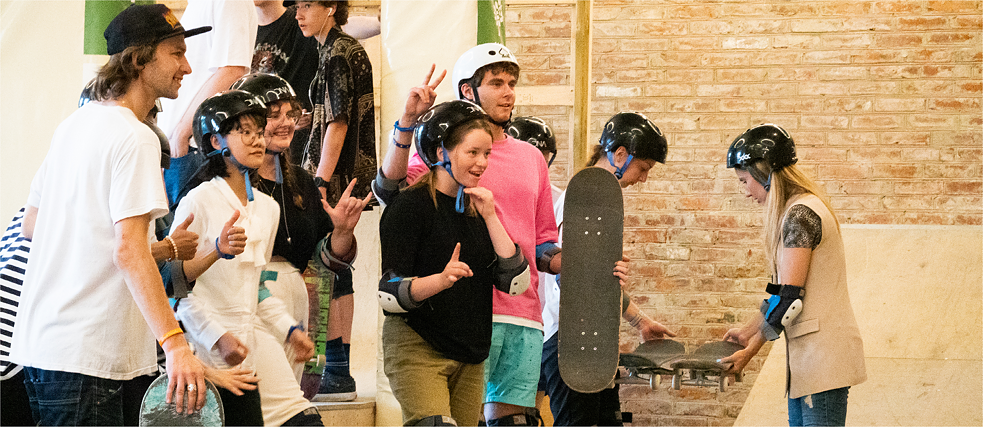
In Cluj-Napoca, the youth movement started with a small group of young people and their
organization PONT calling the attention of their municipality on the importance of winning the European Youth Capital 2015. They were not taken seriously at first, but with their strong will, the cooperation between diverse city stakeholders took place and drove them to where they are today, “a strong youth partner” involved in the city decision making process. One of the constantly reminding mottos we heard from people we met in Cluj-Napoca was “NOT EGO BUT ECO”, the city’s focus of Emil Boc, Mayor of Cluj-Napoca, which means “we work as an ecosystem, not an ego-system. We work with all stakeholders in society”.
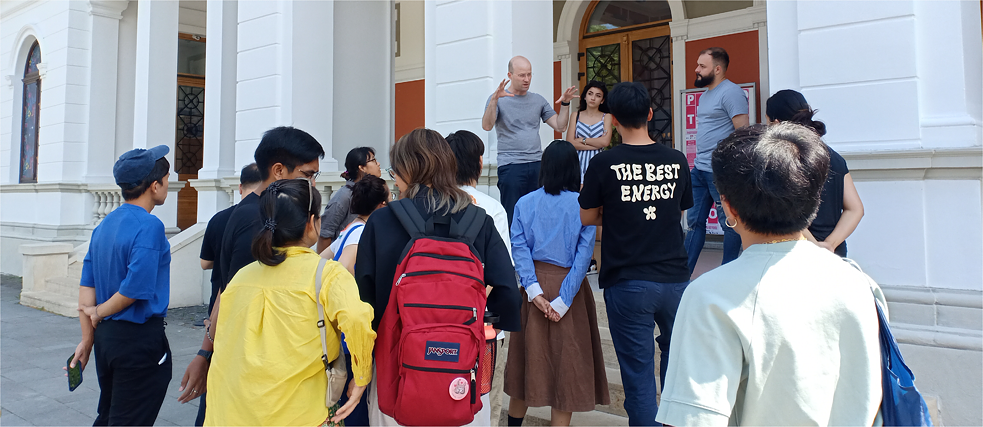
In Thessaloniki, the European Youth Capital 2014 title gave them the opportunities to strengthen youth movement which was after relayed by KEDITH, the Community Enterprise of the Municipality of Thessaloniki with a focus on planning, organizing and implementing of actions, programs and events for youth. The two-day programme in Thessaloniki was guided by volunteers from Katerini, the Network of Youth Engagement, in cooperation with KEDITH. This process created intensive individual exchanges between Thai and Greek youth.
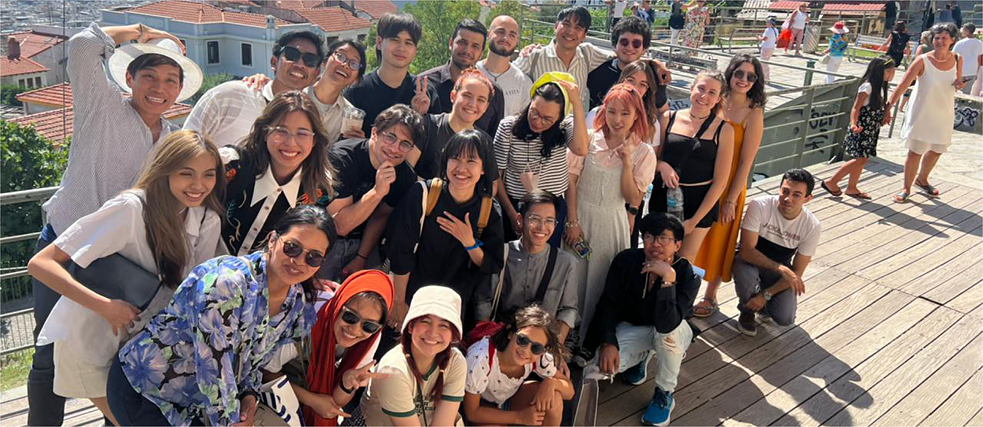
Overall, the role of the European Union in reinforcing youth participation through its multiple programmes was constantly pointed out as the driver of changes. From the participants’ perspective, the study trip was overall a “valuable, irreplaceable experience” that has “widen their worldview”. Some described their experiences through ordinary social scenes they pictured in different city such as people chattering, playing or chilling in public spaces, couples kissing on the street, disabled people using public transportation, etc. yet so meaningful, as it gave them the feeling that EU cities have been designed for its people to belong to. Some called it “sense of belonging”, others “sense of ownership” that have inspired all participants to be part of the changes in their own city in Thailand.
Both Thai and EU participants recognized facing same challenges in terms of engaging more youth in urban development participation. In fact, the participants expressed a seriously low sense of belonging to the city by their peers, that also leads to a ‘brain drain’ phenomena. In Klaipeda, for example the solution to approach and reach out more youth from different areas and interests to join the activities was by visiting schools and operating some "fun" activities that young people are currently interested in. Creating events in fields that are not only directly connected to urban development is also important such as sports, cultural or skating events to attract them to come closer to the network.